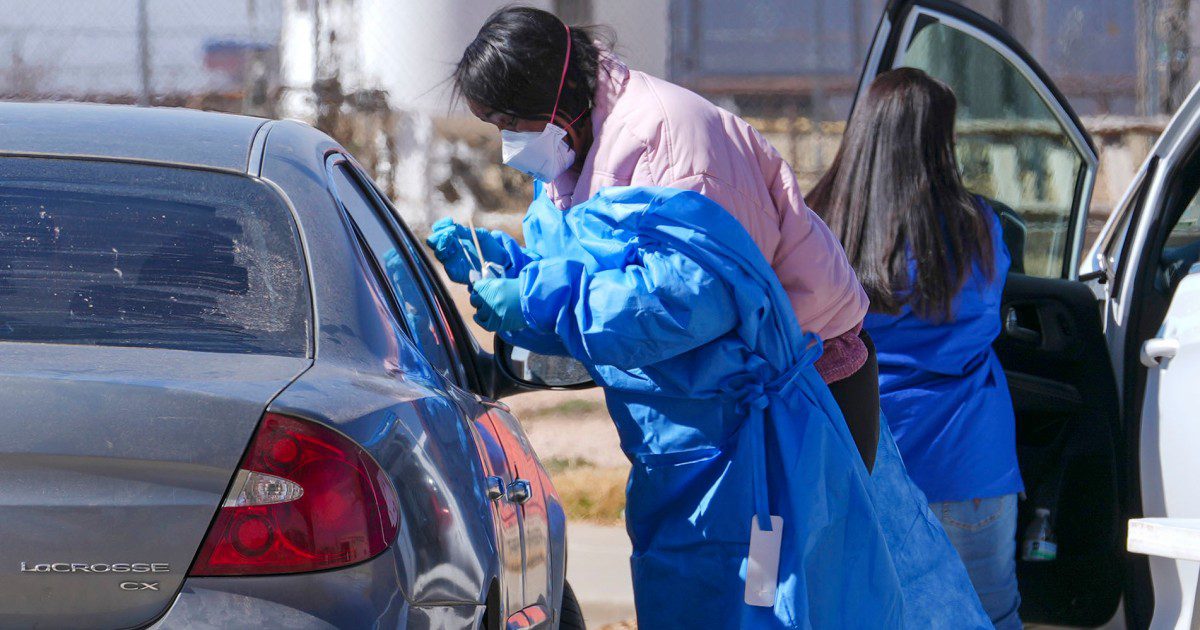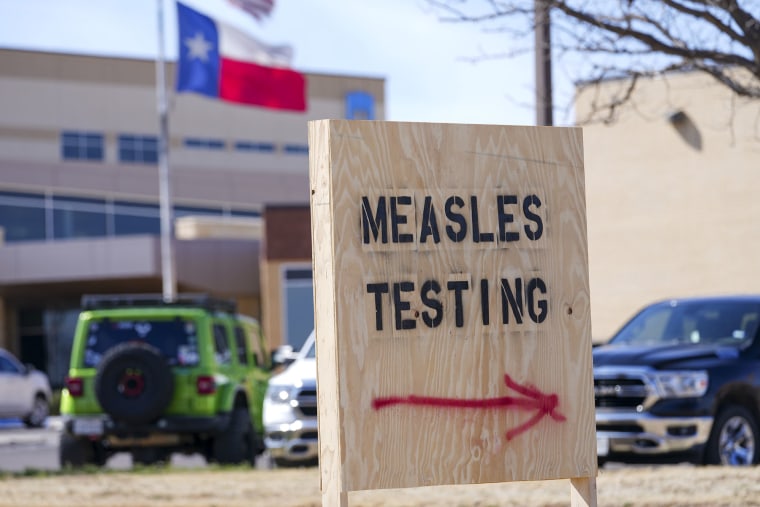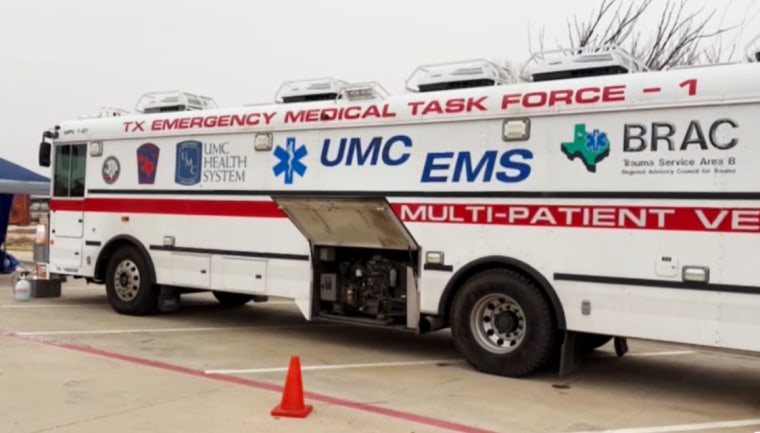
As the measles outbreak in Texas continues to escalate, many parents who previously opted against vaccinations are now eager to immunize their children against this severe disease.
“Concerns are rising in the community,” stated Katherine Wells, public health director for Lubbock’s health department, as residents witness the rapid spread of the highly contagious virus, predominantly affecting children. “We’ve administered vaccines to numerous kids for the first time, including from families who were previously against vaccinations.”
Wells noted that nearly half of the approximately 100 doses of the measles-mumps-rubella (MMR) vaccine administered at the health department last week were given to unvaccinated children.
On Tuesday, the Texas Department of State Health Services reported a total of 124 confirmed measles cases since late January, mainly concentrated in West Texas counties near the New Mexico border. Out of those cases, 18 individuals have required hospitalization, often due to respiratory difficulties.
Of the 124 identified cases, 101 involved infants, school-aged children, or teenagers.

Most of those affected were either unvaccinated or had not received their second MMR dose, which is typically administered around age five. According to the Centers for Disease Control and Prevention, these two doses — given at around 12 months and again at age five — are 97% effective in preventing measles.
Although this protection rate is remarkably high, it does not guarantee complete immunity. In fact, five of the 124 individuals diagnosed with measles in Texas had received at least one MMR vaccination.
Measles is recognized as one of the most contagious viruses globally, transmitted through minute respiratory droplets that can linger in the air or on surfaces for up to two hours after an infected person has left the vicinity.
To combat this outbreak, a mobile health unit has been established in emergency department parking lots in Lubbock and nearby areas to offer measles testing and vaccinations for those not seriously ill. “We’re using this unit to minimize hospital visits because of how contagious measles is,” explained Chad Curry, training chief for University Medical Center EMS, overseeing the mobile unit during this crisis. “We’re striving to mitigate the impact.”

Beginning Wednesday, Curry’s team will also provide immunoglobulin injections or infusions for individuals who have been confirmed to have been exposed to measles and may be at risk for developing complications.
Immunoglobulin, or IG, is an antibody that assists the immune system in combating infections and can be administered up to six days after potential exposure to measles.
Increasing Concerns
Health officials anticipate that this rapidly evolving outbreak will continue to grow.
On Monday, the Texas Department of State Health Services notified the public that an individual infected with measles had traveled beyond the outbreak region to other areas of the state.
This individual visited the University of Texas at San Antonio campus and frequented various restaurants and convenience stores, including Buc-ee’s, in the vicinity of the city.
Symptoms of measles during this outbreak have been “textbook,” according to Wells, with patients experiencing fevers as high as 104 degrees, coughs, runny noses, and inflamed, red eyes. Following these initial symptoms, a rash typically develops, starting at the scalp and spreading downward.
Symptoms may take up to two weeks to manifest after exposure.
Health authorities will now conduct contact tracing, a meticulous process of identifying anyone who has been in public spaces during the same time as the infected individual — or several hours later — to inform them of their exposure and advise them on appropriate next steps.
This effort is crucial in addition to the ongoing investigations centered around the outbreak’s origin.
“My primary concern at this moment is the resources necessary for effective contact tracing,” commented Dr. Ronald Cook, chief health officer at the Texas Tech University Health Sciences Center in Lubbock and the city’s health authority. “We are managing for now, but if the situation intensifies, we will require additional support.”









